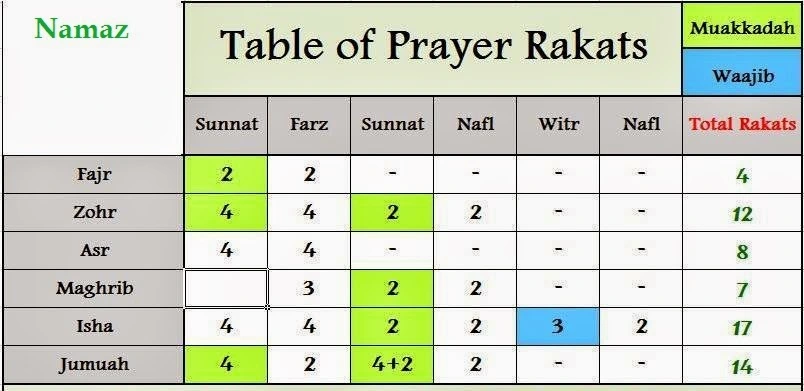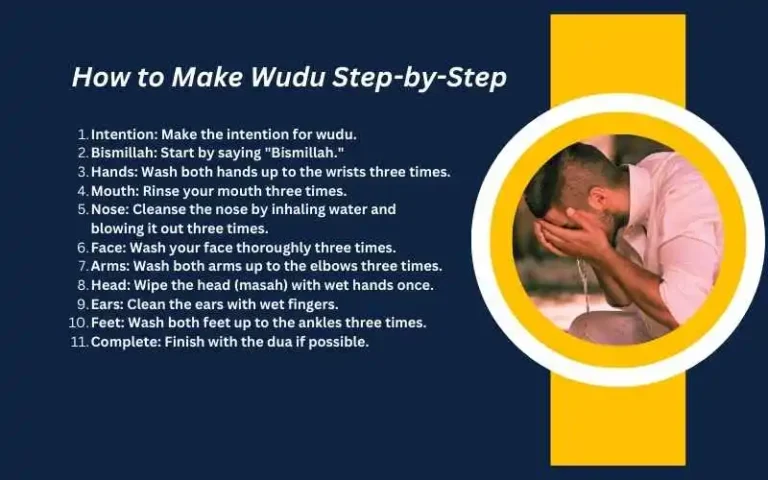Dhuhr prayer has the second number after Fajr Prayer among the five daily prayers in Islam. The time this prayer starts when the sun reaches its highest point, it can invite Muslims to take a quiet break in the middle of the day and focus on Allah. This prayer is a gentle reminder to keep faith at the heart of the day, no matter how busy life gets.
Praying Dhuhr every day builds self-discipline and keeps worship regular. It calms the heart, gives a sense of purpose, and helps balance daily work with spiritual needs. For Muslims, this prayer signals the move from morning to afternoon with awareness and calm.
This article helps you explore everything about Dhuhr prayers, including their rakats, sunnah prayers, the perfect time to perform them, and the meaning of the words recited in salah. We’ll also give simple English guidance so you can perform it with understanding and devotion.
What is Dhuhr Prayer?
Basically, the number of Dhuhr prayers is the second prayer that is performed after the sun passes its highest point in the sky. It is a clear command from Allah, calling Muslims to pause their daily work and focus on worship. This prayer offers a refreshing break at midday, bringing spiritual strength and a sense of calm before returning to regular duties.
It is known as Zuhr Prayer, but most people call it Dhuhr, and both names mean the same. No matter which word you use, it holds the same values as a special time to bring your heart back to faith. Praying regularly helps keep a steady routine of worship, making sure every part of the day stays connected to remembering Allah.
Dhuhr Prayer Rakat Structure
The Dhuhr prayer is the most important part of every Muslims daily salah routine. It is performed in the middle of the day and allows believers to pause, reflect, and reconnect with Allah in the middle of their busy routines. The setup of this prayer is not just about meeting a duty but also about gaining the most spiritual rewards. Every rakat has its purpose, and together they form a complete way of worship that includes both Fard and Sunnah parts.

Here we provide the full details about the Dhuhr prayer rakat structure, explained step by step:
- 4 Sunnah Rakats (before Fard): Prayed first to prepare the heart and mind. The Prophet ﷺ always offered these, so they are strongly encouraged.
- 4 Fard Rakats: The main, required part of the prayer. Every Muslim must perform these, and missing them makes the prayer incomplete.
- 2 Sunnah Rakats (after Fard): Bring extra blessings and show a desire to go beyond the basic duty.
- 2 Nafl Rakats (optional): Not required, but many people offer them for added reward and to stay regular in worship.
In Islam, these Sunnah rakats show that prayer is more than just a duty; it is also an act of love and devotion. By offering both the Fard and Sunnah rakats regularly, Muslims meet their responsibility and also enjoy the extra blessings of voluntary worship.
Virtues & Importance of Dhuhr Prayer
This prayer is a spiritual anchor in the middle of the day. Also called the Zuhr prayer, it holds great value in Islam. It helps wash away sins, brings blessings, and strengthens a believer’s self-control. Here are its main virtues explained clearly:
Cleansing of Sins
The Prophet ﷺ taught that prayer can wash away minor sins committed between each salah. Praying Dhuhr prayer brings forgiveness for mistakes made after the morning prayer and offers a clean start for the rest of the day.
Source of Blessings
Praying at midday brings blessings to your work, studies, and daily life. Doing this prayer regularly adds quiet comfort and success, turning daily efforts into good results.
Discipline & Consistency
The fixed time of this prayer helps Muslims build discipline. Praying it every day develops punctuality, regular habits, and commitment, which show in both worship and daily duties.
Protection from Negligence
Skipping salah can lead to laziness and weaken spiritual strength. The Sunnah prayer of Dhuhr strengthens the heart, protects from forgetting Allah, and helps a person stay mindful of Him.
Focus & Mindfulness
By praying Dhuhr with a sincere heart, Muslims gain clear thoughts and inner calm. This prayer takes the mind off stress and helps them return to work or study with better focus and peace.
When is Dhuhr Prayer?
The midday salah starts just after the Zenith, the time when the sun is at its peak, and lasts until the next prayer time comes. This timing gives Muslims a wide window, but it’s best to perform the prayer early rather than delaying it without any reason.
In different places, the timing can change a little based on sunrise, sunset, and how the time is calculated. That’s why it’s best to look at a local timetable or Islamic calendar to know the exact this prayer in your city.
If someone is reading around the world, this prayer is also called Zuhr. Some books even write Dhuhr as midday prayer in English, so people who do not know Arabic can understand it easily.
Common Mistakes in Dhuhr Prayer
This is a daily practice for Muslims, but a few mistakes lower the reward you get after performing it. It is very important to learn about these mistakes to improve both the quality and acceptance of the prayer. Here are some common mistakes to avoid:
- Rushing Through Rakats: Many people pray faster without stopping for a moment in ruku or sujood, and this action lowers the peace of worship.
- Skipping Sunnah Rakats for Convenience: If you skip Sunnah rakats, it may save time, but you may lose a huge number of rewards. These extra prayers increase faith and were a constant practice of the Prophet ﷺ.
- Lack of Focus During Salah: If you are praying and your mind gets distracted by something, it can reduce your spiritual benefits. Because focus is first priority in the Namaz. When you remain relaxed and humble, your connection with Allah is genuine.
- Mispronouncing Dhuhr Prayer Words: Reciting Qur’anic verses the wrong way can change their meaning, but learning the correct words helps keep your prayer clear, meaningful, and heartfelt.
Qaza & Making Up Missed Dhuhr
If the midday prayer is missed because of forgetfulness, sleep, or another valid reason, it should be offered later as a make-up (qaza) prayer. The intention (niyyah) should clearly state it is a make-up prayer, and the number of rakats stays the same, four Fard, plus Sunnah if possible. It is best to perform the qaza prayer soon after remembering, as delaying without a reason is not recommended.
There is one confusion, and this is that this salah can be combined with others. Most of the people teach to combine it with Asr in some circumstances, but the original rule is to pray every salah separately. Delaying until just before Asr is allowed only if necessary, but it is always better to pray it earlier on time to get the complete reward and get saved from the risk of missing it.
Benefits of Dhuhr Prayer
The midday prayer is more than just a duty. It brings many blessings that touch both spiritual life and daily routines. Taking a moment to pray in the middle of a busy day gives believers strength, peace, and focus to carry them through the rest of their tasks.
- Spiritual purification: Each salah washes away minor sins, and the midday prayer serves as a fresh start after the morning hours, keeping the heart pure.
- Boosts productivity & focus during day: Taking a break for worship recharges the mind, helping one return to work or study with renewed energy and concentration.
- Protection from sins: Regular prayer acts as a shield, reminding a believer to stay away from wrongful actions throughout the day.
- Connection with midday blessings: Pausing at this time invites barakah into daily activities, ensuring that even routine efforts are filled with divine reward.
FAQs
How many rakats in zhur prayer?
This salah consists of four Sunnah before the Fard, four Fard, two Sunnah after, and two Nafl if possible. The Sunnah rakats carry extra reward and were emphasized by the Prophet ﷺ.
Can dhuhr be prayed late if missed?
In case if you miss it by mistake or there are unavoidable circumstances, you can complete it later as qaza. But first priority is to offer it quickly on time without any delay.
What is the difference between dhuhr and zuhr?
There is little difference in spelling; most people call it dhuhr, and a few may say zuhr. But do not worry because both words refer to the same midday prayer. The word Zuhr is simple and easily pronounced, and is commonly used in different regions.
Do I need to pray Sunnah if short on time?
The Fard part must always be prayed and or important, while Sunnah rakats bring extra blessings and reward. If time is short, pray the obligatory units first and complete the Sunnah later if you can.
Can I pray dhuhr in English if I don’t know Arabic?
Everyone can recite the Quran in Arabic, but beginners can learn it properly. If someone is new, they can start by learning small surahs while also understanding the Dhuhr prayers in English to make a stronger bond and devotion.
Final Verdict
Dhuhr is the second of the five daily prayers in Islam. Performing this prayer at midday is a great sign of discipline and devotion, and it reminds us to stop all the work and get connected with Allah. Paying attention to the Sunnah rakats and the meaning of the recitations makes the prayer more meaningful and strengthens the heart’s connection to faith. For those who want to improve their understanding and pronunciation, trusted resources like MyQuranTutor can help in learning this important prayer correctly.
We will first enroll you in learn to read Quran course, because in prayers it is essential to recite it correctly. You can contact us today if you wish to learn the Quran or any other Islamic course. Our male Quran Teachers & female Quran Teachers will guide you practically.








